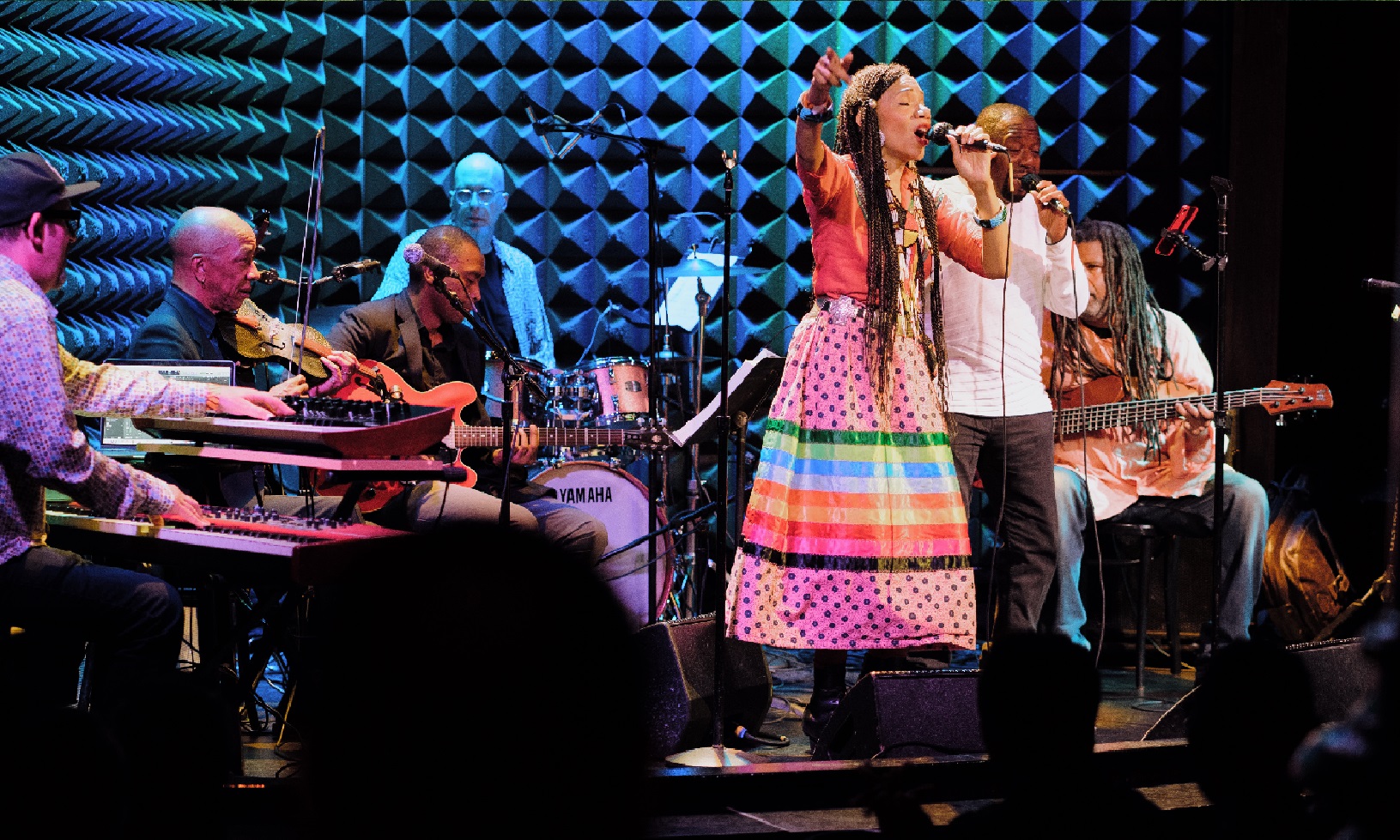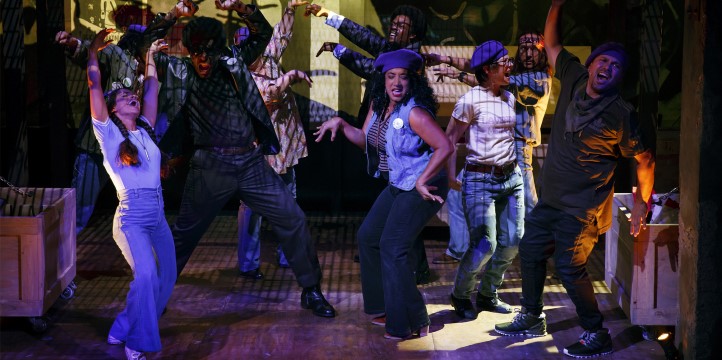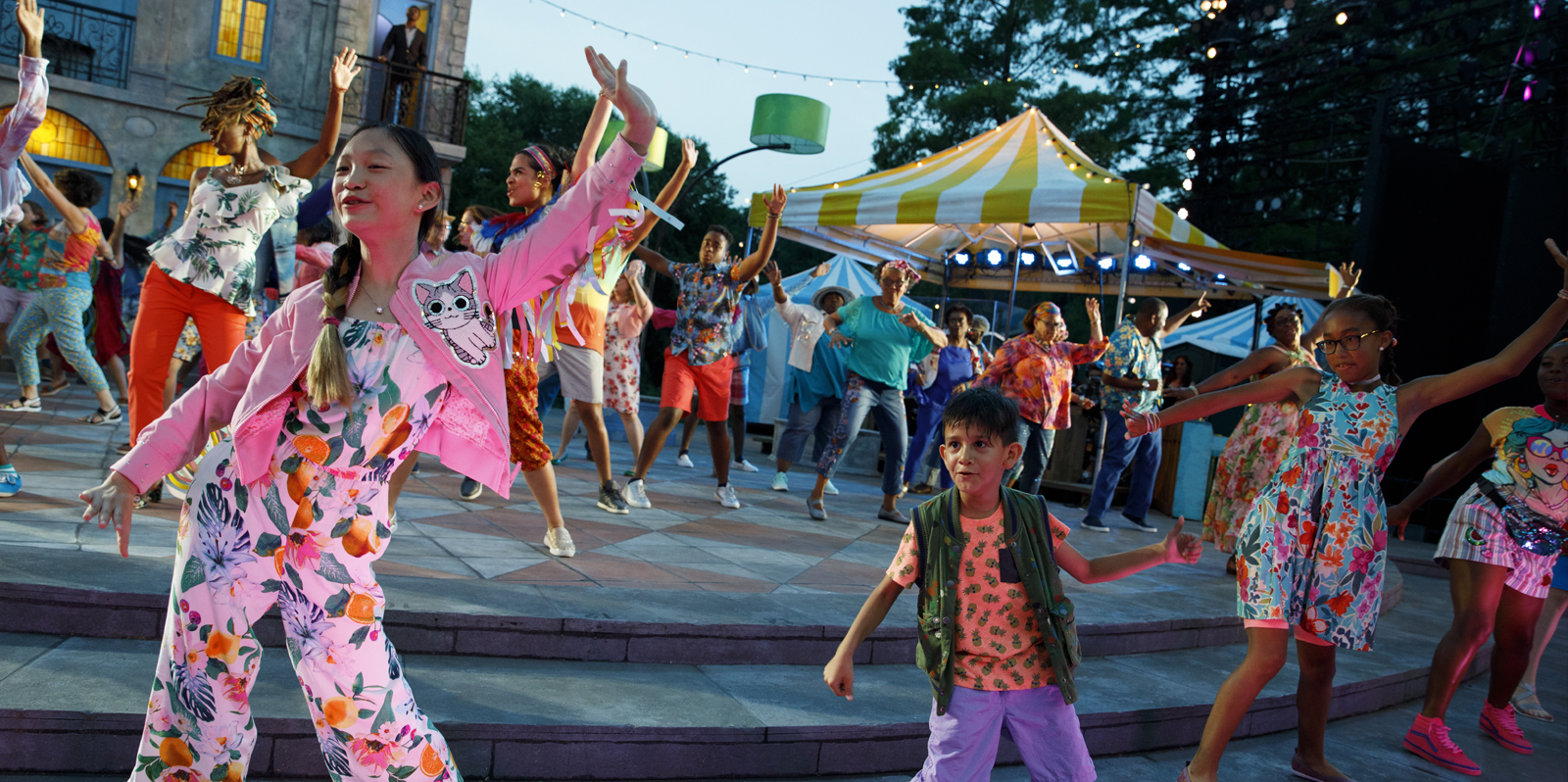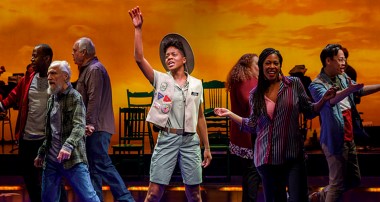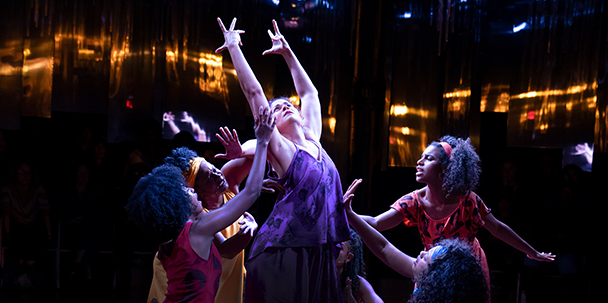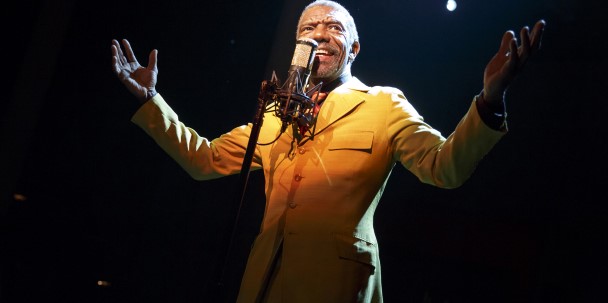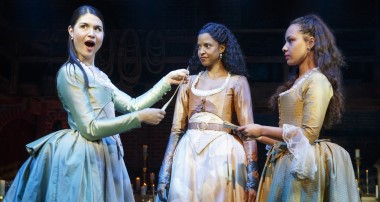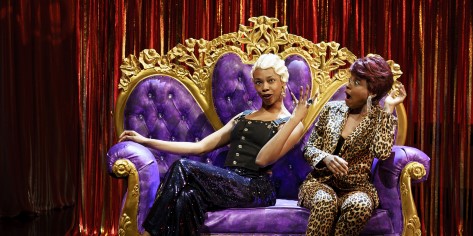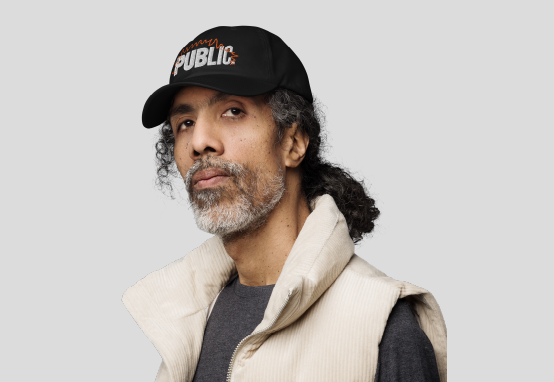Music is a critical component of MERRY WIVES, a Shakespeare adaptation that is currently showing at The Delacorte Theater. Michael Thurber, composer of MERRY WIVES, discusses how he uses music to make audience members, particularly BIPOC theatregoers, feel less alienated by Shakespeare’s language. Farai Malianga, the show’s original drum composer, echoes this sentiment as he describes how working on MERRY WIVES made him realize that appreciating Shakespeare did not conflict with his African identity. The following conversation has been edited for length and clarity:
ALEXI CHACON: How did you leverage music to bring the characters to life?
MICHAEL THURBER: Some of the characters are Americans and other characters are first generation folks from various countries in West Africa. Musically, we wanted to represent that. Falstaff, who’s our lead male character in the play, is American in this interpretation. We thought that maybe Falstaff was a ‘90s hip hop fan. But then, once I came into the first rehearsal and actually saw Jacob [Ming-Trent] play Falstaff, I immediately thought Falstaff is more the kind of guy that wakes up in the morning and listens to Gap Band and who might even be into late ‘80s R&B and pop.
AC: This production is unconventional in its BIPOC cast and in the African lineage that is represented through costume design. I think that unconventionality can lead to increased accessibility. What role do you think your musical composition in this production plays in ushering in that accessibility?
MT: Ideally, the music plays a big role in that. That’s certainly the intention. There’s a lot of things that we have done to represent the sonic landscape of West Africa. You know, like, I’m a huge Fela fan, for instance, but we specifically wanted something that felt more current and more immediate, you know, for the exact reason that you’re saying, because it speaks to an audience that might actually be listening to some music that sounds exactly like that. We included modern sounds like synths and electronic drums that are indicative of what’s happening in popular music right now. Hopefully that lets people know, even in a subconscious way, that this play is for you today and not this old, dusty thing.
AC: What was the most surprising outcome of your work with this production?
FARAI MALIANGA: The biggest thing is my own personal paradigm shift, right? I grew up in Zimbabwe after independence, and I was in a school that was predominantly white. A lot of my identity required resistance from what I was learning. If things had a colonial basis, I was purposely resistant to them. Shakespeare was one of those things that I avoided, because I felt like it was a part of the indoctrination that would not allow me to be proud of being African. I am now in a place where I don’t have to necessarily fight. I can enjoy Shakespeare. I can listen to the script and the text and see what he’s trying to get across without having to fear the idea that somehow that means I am being less African or am less in touch with my identity.
AC: What themes was your music trying to convey throughout the play?
FM: I can take credit for the African interpretations throughout the play because we’re using the drum. I use a talking drum, which was really important to me, because I didn’t really want to use a ton of them. The talking drum is designed to actually replicate language. For Shola [Adewusi, who played Mama Quickly], I would just simply mimic whatever she said. And then that becomes authentic to the world of the play by maintaining African concepts.
MERRY WIVES ran at The Delacorte Theater through Saturday, September 18.
Alexi Chacon is the managing editor at Token Theatre Friends and a community organizer at Community Legal Services. Follow him on twitter: @alexic213.
This piece was developed with the BIPOC Critics Lab, a new program founded by Jose Solís training the next generation of BIPOC journalists. Follow on Twitter: @BIPOCCriticsLab.
Pictured: Farai Malianga. Photo by Joan Marcus.



